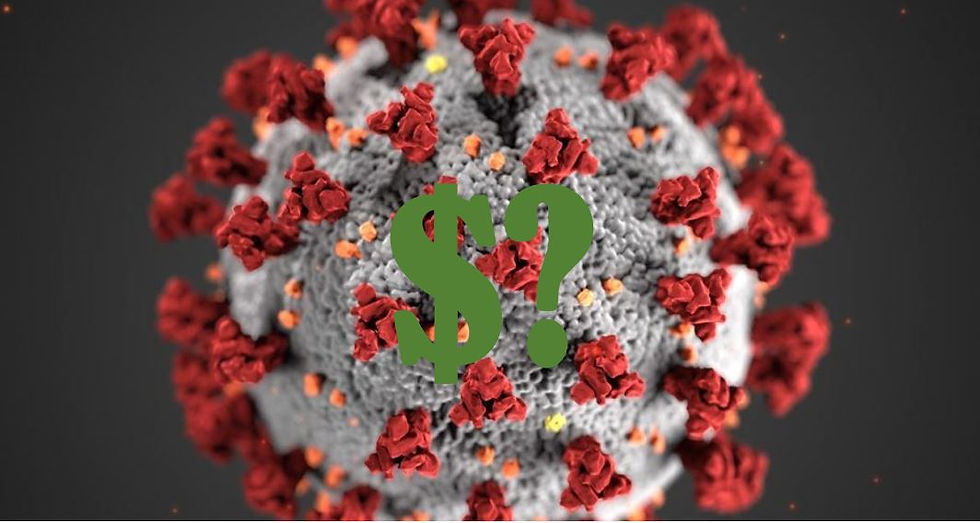COVID-19 CASH IS HOPEFULLY ON THE WAY
- Sarah Anderson

- Mar 18, 2020
- 2 min read

Albeit a departure from cyber issues, hopefully this small (but growing!) readership finds some comfort in the U.S. government’s efforts to ease the financial burdens caused by COVID-19.
H.R. 6201, the “Families First Coronavirus Response Act” passed the U.S. House of Representatives and should enter the U.S. Senate this week. As written, and if passed by the U.S. Senate and signed by POTUS, the Act will provide the following benefits:
$500 million in Women Infants and Children (WIC) funding for food for low-income pregnant women or mothers who lost work/income due to the COVID-19 emergency.
$400 million for local food banks servicing low-income Americans.
Flexibility for states to administer emergency SNAP assistance for households with children receive free or reduced-price school lunch (schools must be closed for more than 5 days for approval by Fed. Govt.).
$5 million in funding for Dept. of Labor to administer emergency paid sick leave through September 30, 2022.
$250 million for approx. 25 million delivered meals for low-income, home-bound seniors.
Continued access to school lunches for eligible students and elimination of administrative requirements for schools.
Flexibility for States to request temporary, emergency increase in SNAP benefits.
Free COVID-19 testing for uninsured individuals (labs to be reimbursed by National Disaster Medical System).
Free COVID-19 testing for Tricare Recipients (Military and Veteran health insurance).
Creation of the Emergency Paid Leave Act of 2020: (1) Ensures pay for an “emergency leave day,” for days when a person cannot work due to COVID-19 (including school closures! (2) Eligible workers will receive benefits for up to 3 months. (3) Benefits can be paid retroactively (filed up to 6 months after enactment).
$1 billion for Emergency Transfers for Unemployment Compensation Administration, paid to states for processing and paying unemployment insurance benefits
Public Health Emergencies and Personal and Family Care Act - requires all employers to allow employees to accrue seven days of paid sick leave and provide 14 days available leave immediately in the event of any public health emergency, including COVID-19: (1) Covers school closures due to a public health emergency, or if you or a family member is quarantined or isolated due to a public health emergency. (2) Reimburses small businesses (50 or fewer employees) for the 14 days of leave.
Requires private health plans to pay for COVID-19 testing at no cost to the consumer.
While some of these benefits may take weeks or months to reach consumers, the White House announced a near $1 trillion stimulus package that literally seeks to send cash to all eligible, adult Americans. Republican Sen. Mitt Romney infamously advocated sending every adult American a check for $1,000 as a form of economic stimulus. According to Politico, The Washington Post, The Wall Street Journal, NBC, and CNN, the White House wants to do just that – within two weeks. The details of the stimulus package are not yet released, however, unlike the 2008 Troubled Asset Relief Program, the intended beneficiaries will be actual people.
(Unless and) Until the COVID-19 cash arrives, support your local and small businesses as much as possible and spread the word about available resources to those who need them.








